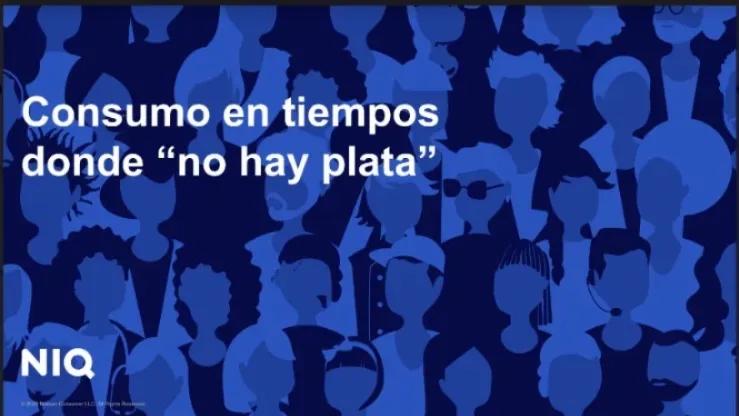```
Power & Money for FinGuru
NielsenIQ (NIQ), a global leader in consumer data and analytics, presents a detailed report on mass consumption trends in Argentina for the first five months of 2024. The study delves into market behavior in a complex economic context, offering projections for the rest of 2024 and early 2025.
The NIQ study reveals a decline in the purchasing power of Argentinians during the first quarter, due to the end of price controls, and it is estimated that this may affect the remainder of the year. However, in the last two months, a slowdown in the consumption decline was observed, coinciding with a lower inflation rate, suggesting a possible recovery for 2025. Despite this slowdown, the tariff adjustment that could imply an additional 15% loss in purchasing power still needs to be implemented. The lifting of the exchange rate clamp could accelerate inflation and further impact disposable income.
According to NIQ's analysis, although it is projected that mass consumption will continue to decline for the rest of 2024, by approximately 14% on average until December, this decline is expected to gradually slow down. While the recovery will not be immediate, a positive trend change is anticipated for the first quarter of 2025.
During the first half of 2024, Argentine households, with a long history of facing economic crises, employed various tactics to stretch their money, including seeking out cheaper brands and waiting for promotions.
Main conclusions from the first half of 2024:
1. Expense Reduction: Consumers have mainly reduced their spending on leisure and clothing. One in three has cut expenses on appliances and beauty products, while food is the least affected category.
2. Downtiering as a savings strategy:
o In high-spending categories, economical brands are gaining ground. In products like laundry soap, the segments for diluting and powder increased their share due to their 20% and 30% savings respectively compared to regular liquids.
o In edible oils, there is a growth in own economic brands, with larger sizes (1.5 liters) gaining popularity.
3. Changes in beverage and food consumption:
o Non-alcoholic beverages and powdered juices are seeing an increase in demand for cheaper brands and returnable formats. Beverages were the first category to react to the crisis and began to fall, and now they are the first to start recovering, slowing the decline in consumption.
o In dairy, categories such as spreadable cheeses and fluid milk are seeing an increase in economical brands.
o In cookies, consumers prioritize price over brand, choosing products with expenditures below $2,000.
4. Reconfiguration of sales channels:
o Supermarkets and self-service stores show a smaller contraction than the average, while the traditional channel is the most affected.
o E-commerce and wholesalers are the only channels that maintain a positive trend.
o In the traditional channel, soft drinks, beers, powder to prepare juices, flavored waters, and sweet dry cookies are the best-selling categories.
"During this first half of the year, 94% of categories contracted; however, the impact is not the same for all. Most high-spending categories fall above the basket average, while lower-spending categories contract below the average. There is a much stronger trend in Argentina than in the rest of the Latin American countries towards buying cheaper brands, this being one of the strongest savings strategies," reported Javier González, NIQ Argentina's Commercial Leader. He adds: "Proximity supermarkets and wholesalers were the best positioned in the face of the crisis, while stores were the most affected."
For companies, it is crucial to develop differentiated strategies based on the channel, purchase mission, and consumer type. In the traditional channel, prioritizing low-spending and high-turnover products will be essential for proper execution and adaptation to new market dynamics.
NIQ is the global leader in consumer intelligence, providing the most comprehensive understanding of consumer purchasing behavior and opening new avenues for growth. It merged with GfK in 2023, bringing together the two industry leaders with an unprecedented global reach. With a holistic view of retail and the most comprehensive consumer information, delivered with advanced analytics through cutting-edge platforms, NIQ offers The Complete View. It is a portfolio company of Advent International with operations in more than 100 countries, covering over 90% of the world's population. For more information, visit NIQ.com
```

Comments